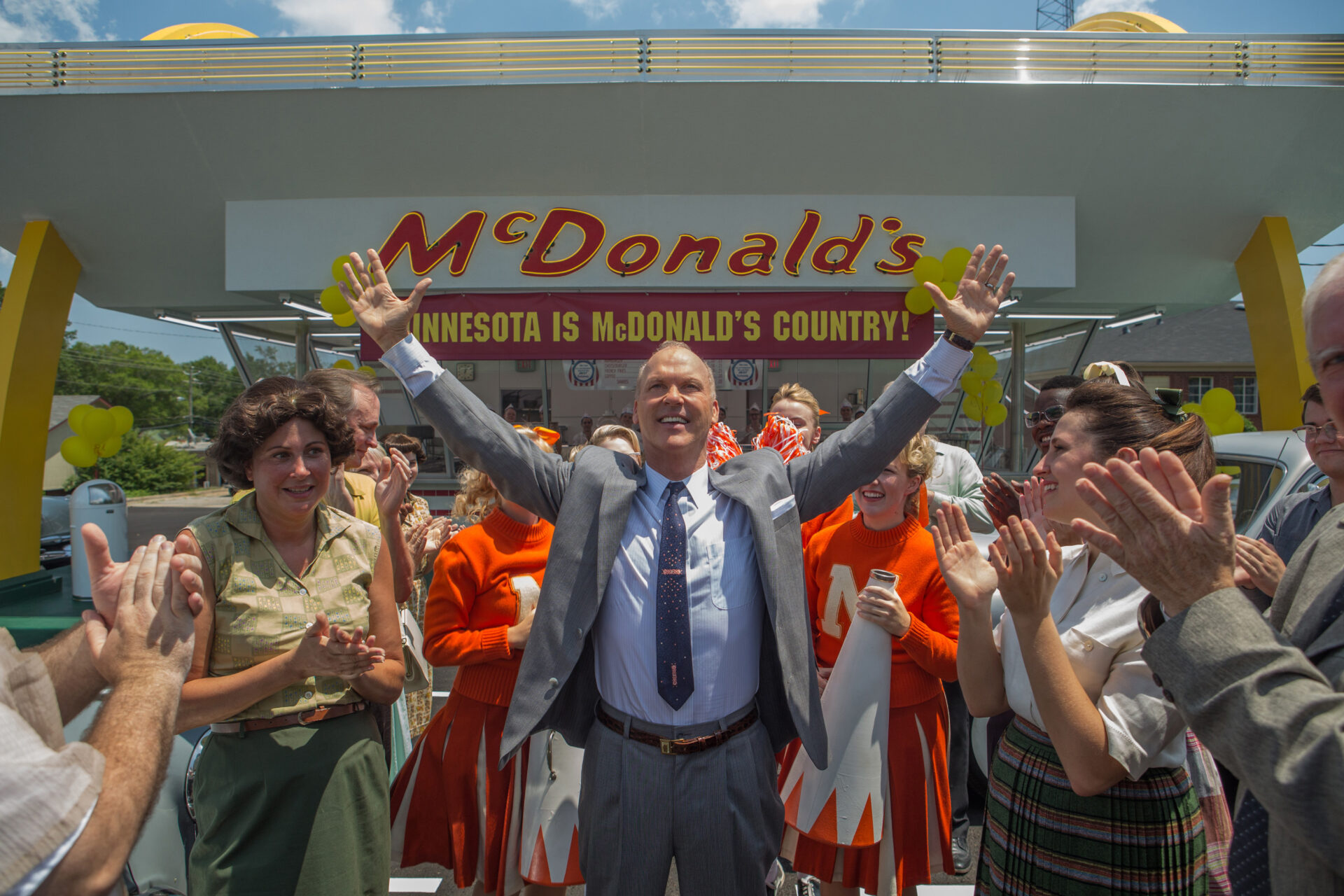
Near the beginning of this chronicle history of the McDonald’s empire, we get a look at the hamburger stand in San Bernardino, Calif., that started the chain.
It’s 1954, and a long line of customers are waiting for a burger, fries and a Coke.
We’re seeing it through the eyes of Ray Kroc (Michael Keaton), the underachieving Midwestern milkshake-machine salesman who’s seen hundreds of dreary drive-ins, diners and dives and knows he’s stumbled onto something big here.
Some might see this scene as the thrilling origin of a great American success story. Others might see it as the chilling start of a sci-fi horror film, like the moment the zombies or the alien pods start to spread soul-less conformity—Invasion of the Franchise People.
It’s both, of course. Kroc, a hustler who’s never found quite the right hustle, talks his way into a job franchising the chain on behalf of the brothers Maurice “Mac” McDonald (John Carroll Lynch) and Dick McDonald (Nick Offerman), New Hampshire natives who had gone West in search of fortune.
According to The Founder, the sweet, conciliatory Mac and the quiet, wary purist Dick were just trying to run a good quality, profitable burger joint, but with the system he had developed—limited menu, choreographically precise preparation, ridiculously speedy service—Dick had essentially invented fast food.
The film tells how Kroc turned this concept into a third locus for American communities, alongside the city hall and the church—Keaton gets a ripe speech describing Kroc’s vision of the Golden Arches taking their place alongside the flag and the cross in towns across America.
Within a few years, he’s on his way to realizing this, and he’s also at war with Mac and Dick, who are still in control of the brand and slow to approve any of Kroc’s innovations.
The director is John Lee Hancock of The Rookie and The Blind Side, working from a script by Robert D. Siegel, the former Onion writer who scripted The Wrestler.
There are lines and moments that hit a sour note in terms of period—the phrase “family friendly” somehow didn’t sound like 1954 to me, for instance. But I liked how conflicted Hancock and Siegel seem about their protagonist—an admirable entrepreneur and a selfish, hubristic S.O.B. at the same time.
About midpoint, Kroc, who’s not too happily married, falls in love at first sight with the wife (Linda Cardellini) of a man with whom he’s doing business.
The tension between the Norman Rockwell wholesomeness of Hancock’s style and the complex and unsavory sexual and economic subtext makes the scene really uncomfortable—and really interesting.
It’s doubtful that any of this would anywhere near the same charge without Michael Keaton. He deploys his usual manic star persona, the jumpy guy who turns his bouncing-off-the-walls patter into a constant, disarming self-parody.
But here he shades it to a character that’s not altogether likable, and he’s no less vibrant and riveting for that.

